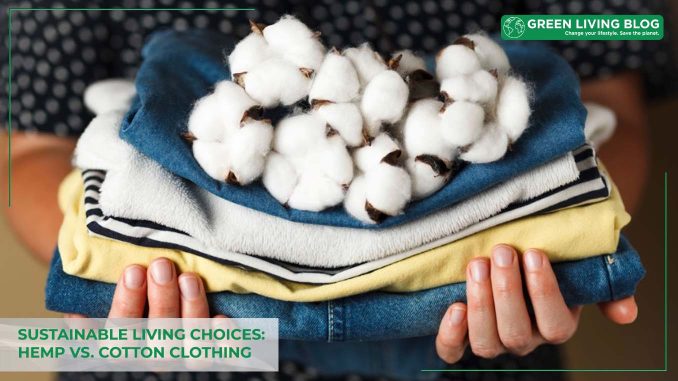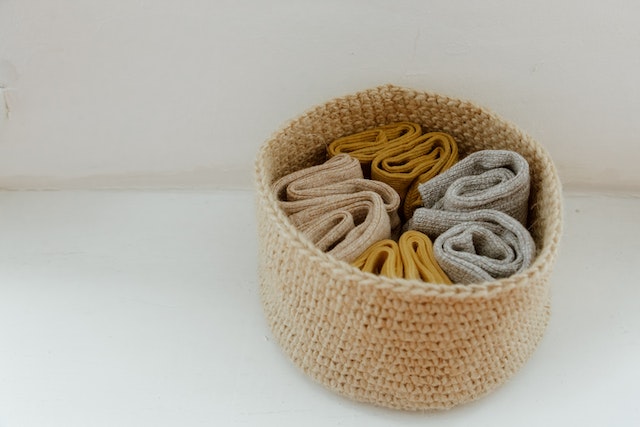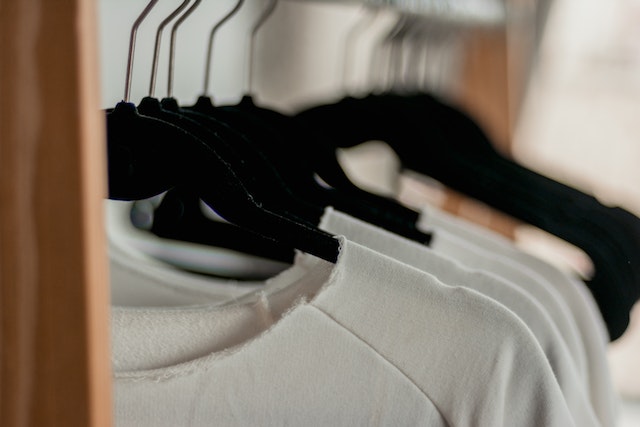
Do you want to buy comfortable and fashionable clothing yet remain eco-friendly?
If yes, the idea of getting hemp clothing might have crossed your mind. Hemp is touted as an excellent alternative to cotton, which requires lots of pesticides and water to grow.
But despite this, cotton remains the most widely used fabric worldwide.
In contrast, hemp is environmentally friendly and sustainable but lags behind cotton in popularity. This may be due to the stigma attached to industrial hemp. Also, it was illegal to produce hemp as an agricultural product for many years.
With the signing into law of the Agriculture Improvement Act of 2018, federal restrictions against hemp cultivation were removed.
What Is Sustainable Living?
In a nutshell, sustainable living is about making responsible choices in the present that will positively impact the environment in the future. Even minor decisions like cycling or joining a carpool to go to work and adopting green habits like composting, buying items in bulk, and opting for organic produce can make a massive difference to our planet.
To be an environmentally conscious consumer, you must carefully consider your choices.
Comparison Of Hemp Vs. Cotton Clothing
Here’s a comparison of hemp and cotton to help you decide which clothing material can help you achieve your personal sustainability goals.
1. Hemp Is More Durable Than Cotton

Regarding durability, hemp beats cotton by a significant margin. The tensile strength (resistance against pulling and breaking) of hemp is about three times higher than that of cotton.
If you buy a clothing item made of hemp and another made of cotton, the hemp garment will likely last for 20 to 30 years, while the cotton garment will serve you for about 10 years. As for the hemp plant, it’s resistant to humidity and fluctuations in temperature.
Hemp clothing is also more durable because you can wash it repeatedly without damaging it. As for cotton fabrics, the more you wash them, the more they become softer, and the fibre becomes stretched. As a result, the cotton clothing will develop a rugged look. Cotton fabric is also prone to tearing as it gets thinner over time.
Clothing made of cotton may be more comfortable, but that made of hemp is more durable. And after many washings, hemp clothing will offer you the same comfort as cotton.
2. Hemp Does Not Rely On Pesticides As Much As Cotton
Cotton growing uses a considerable number of fertilizers and pesticides. On average, the cotton industry uses 24% of insecticides and 11% of pesticides. Prolonged exposure to these chemicals may cause health concerns like rashes, dizziness, nausea, and blindness.
In addition, these agrochemicals affect the soil’s overall quality. These also end up in rivers, streams, and other water sources, further affecting the environment.
With hemp farming, pesticides are barely needed because these plants are resistant to diseases and pests. These plants also overpower weeds naturally, so they can thrive without herbicides.
If you want to help address environmental issues, consider opting for hemp clothing over cotton.

3. Hemp Can Retain Colours Better Than Cotton
Hemp is an excellent material because it doesn’t limit your choices in terms of colours. Since hemp is more water-absorbent, it will retain dye colours better than cotton.
Furthermore, you may decide not to use chemical dyes on your fabrics. Hemp fibre can be naturally creamy white, green, black, grey, or brown, depending on the hemp’s strain, method of harvesting, and the technique used to separate the fibres.
4. Hemp Boosts Soil Quality
Generally, the presence of toxins in the soil negatively affects the growth of plants. Surprisingly, hemp does not seem to be affected by contaminants in the soil. In fact, research shows that hemp crops can be used to decontaminate soil of toxic elements like lead, nickel, and cadmium. Similar studies are being conducted to investigate industrial hemp’s potential to filter radioactive materials and toxins.
Moreover, hemp leaves and stalks can be used on the farm as natural fertilizers, improving the soil. Hence, hemp is considered valuable for crop rotation.

5. Hemp Needs Much Less Water Than Cotton
Cotton farming requires significant quantities of water, about four times as much as hemp needs. Cotton also takes longer to grow. On the other hand, hemp needs far less water to grow and reach full maturity.
With many parts of the world experiencing a water shortage, hemp is a better choice over cotton, as less water is needed. Furthermore, hemp helps minimize soil erosion because its roots reach deep into the soil and hold it together.
Takeaway
While cotton is the most commonly used material in the clothing industry, hemp is starting to get attention because of its durability and other environmentally friendly properties, like needing less water, fertilizers, and pesticides.
If you’re still on the fence about whether to choose hemp or cotton clothing, refer to the detailed discussion above and make the environmentally responsible choice.
![]()
Author Profile
- Online Media & PR Strategist
- Blogger and Educator by Passion | Senior Online Media & PR Strategist at ClickDo Ltd. | Fascinated to Write Lifestyle Blogs in News & Education I have completed a journalism summer course at the London School of Journalism and manage various blogs.
Latest entries
 Green Expert GuidesMarch 28, 2025Lisbon Living: Where Sustainable Charm Meets Urban Energy
Green Expert GuidesMarch 28, 2025Lisbon Living: Where Sustainable Charm Meets Urban Energy EnvironmentJanuary 21, 2025Buying Eco-Friendly Homes: 6 Eco Questions to Ask Your Real Estate Agent
EnvironmentJanuary 21, 2025Buying Eco-Friendly Homes: 6 Eco Questions to Ask Your Real Estate Agent BusinessJanuary 16, 202510 Benefits of used Office Furniture when Refurbishing an Office
BusinessJanuary 16, 202510 Benefits of used Office Furniture when Refurbishing an Office Best practicesJanuary 6, 2025Eco-Friendly Event Planning: Mastering Sustainable Waste Management for Holiday Celebrations
Best practicesJanuary 6, 2025Eco-Friendly Event Planning: Mastering Sustainable Waste Management for Holiday Celebrations






Leave a Reply
You must be logged in to post a comment.